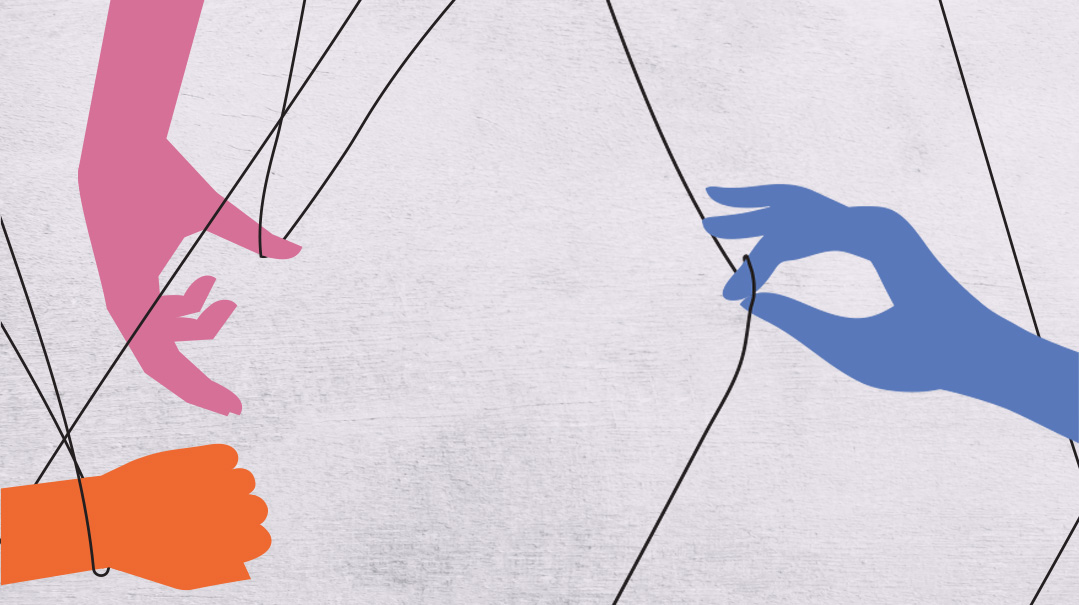Fallout: Chapter 44

“Papa, you mentioned retirement. Are you really thinking about it? What will you do?”

September 1964
IN the silence that followed his unexpected pronouncement, Annie stared at her father. He still had that slight smile and — could it be? — there was a spark of something that she almost suspected was mischief in his dark eyes.
Mischief? Papa? Impossible: You’re imagining things.
“Moishe Baruch, did you think I didn’t notice that the boarders were no longer coming, and that the neighborhood was changing? I was a bookkeeper once, remember? I know when a business is in the red.”
So Papa had known all along.
“I’ve been thinking about retirement for some time now,” he continued, looking squarely at Moe. “I was going to wait until after our happy event, b’shaah toivah” — here he smiled at Annie, not in mischief, but in profound joy — “to discuss it with you. But since you’re bringing it up, Moishe Baruch, if you wish it, you can stay on as manager of the hotel after I leave. But—”
Here Moe finally interrupted. “Papa, I don’t want to stay here.” And he described the Manor House Hotel, listing all the reasons why it made sense to buy the property, while Abe brought him up to date on the Levine family’s relocation plans.
Yeruchum was interested and encouraging, and as the talk turned financial, Annie was free to examine her thoughts at this surprising turn of events. How wonderful: No machlokes, no bad feelings after all. Yes, she should have known that Papa, with his clear vision, would have realized that the hotel was no longer viable and would have accepted the change as inevitable.
Change. So much change in this past eventful year. A son in the army, on his way to a war zone. Saying goodbye to one home and moving to another. A child, married, with a child of her own. And, of course, a new baby, one who — she winced a little — was making his or her presence felt quite strongly, with kicks that filled her with awe and happiness and a tiny flash of anxiety.
Baruch Hashem, I will have my family with me when I finally get to hold my little one.
Something suddenly struck her, something Papa had said. She turned to her father and once again noticed that unusual glint in his eye.
“Papa, you mentioned retirement. Are you really thinking about it? What will you do?”
“Don’t worry about me, mein kindt. A Yid always has something to do. Ratzon Hashem.”
And with that, Annie had to be satisfied.
But she wondered.
M
arjorie looked longingly at the mumu-clad figure growing smaller and smaller as she waddled slowly down the street. Marjorie could catch up in two or three leaps and beg Mama Mumu to let her go with her. She could live in Mama’s strange yet compelling world where nothing was real but today, this moment, this place, the people standing before her.
Yet something held her back.
I’m tired of running away.
She’d begun this journey in an almost frantic search for freedom. Well, maybe she’d found it. There was Chrissie and her other Haight friends, living in a world of foggy laughter, not bound by any rules or even rational thought. Sleeping the day away, hanging out and singing rock songs, smoking and drinking and talking about peace and love through the night. And there was Mama Mumu, with her kind heart, unable to stay in one place for any length of time. Helping people and then abandoning them.
Free.
She stared at Danny. He was examining the damage to the car, pulling at the dented trunk to see if he could get it open. A good son, a good man. A man who could live comfortably within the confines of the life he’d chosen, knowing it was the right thing to do.
What is the right thing to do? For me? For Marjorie Burton?
Mama Mumu turned around a corner and disappeared from sight. Marjorie did not follow her. Instead, she sat down on the curb next to her car, and put her aching head into her hands, utterly defeated.
Danny sat down next to her. His voice was gentle, “C’mon, Margie, it’s not so bad. At least you got the car back.”
“Yeah.”
“Why don’t we go to my house? You can meet my mom, and she’ll feed you something better than soup kitchen food.”
She lifted her head toward him. “You’re very nice, Danny, and I appreciate it. But this is, kind of, something I’ve got to figure out by myself. I’ll be okay.”
“Sure?”
“Sure.”
With that, she picked herself up. “Tell your pop I’ll be in the store tomorrow. On time.” She headed up the stairs, turned to look down at him. “And Danny… thanks.”
W
orking in the grocery during the day and hanging out with friends at night, Marjorie hadn’t had much time to spend in the apartment. Now she looked around her, her nose wrinkled in disgust.
Before I clean up my own life, I’m cleaning up this pad.
She looked around at the dim walls surrounding her. Combining Chrissie’s money from begging and a portion of Marjorie’s first paycheck, the roomies had calmed the irate landlord and also paid the electric bill.
First, turn on the lights.
She glanced through the dirt-encrusted window. With the time they’d spent in the soup kitchen, rowing on the lake, and the crazy scene downstairs, the day was coming to an end.
Hey, Shabbos is almost over. Let me wait a little bit more before I start.
She sat down cross-legged on the floor in the increasingly dark apartment. Her thoughts traveled to life in the Freed Hotel as Shabbos was coming to a close. They’d been pretty special, some of those Shabboses, as she sat on the porch in the dusk with Mrs. S., quietly savoring the last tranquil and serene moments of what had been for Marjorie an interesting (though, to be honest, sometimes boring) day.
Serenity. It seemed like it had been a long time since she’d felt it. Except for once: those few precious moments when she’d awakened at dawn in the canyon near Albuquerque. She remembered the mist around the mountains, the gentle colors of sunrise on the rocks, the clear waters of the Rio Grande. Marjorie had felt something there, a rare clarity of mind, something as close to holiness as she’d ever experienced in her turbulent and noisy and distinctly unholy life.
Should she chuck everything right now? It was about a long day’s drive in — she rolled her eyes — her poor, desecrated Mustang. She could leave now for the canyon and see if she could recapture those feelings. She wouldn’t be escaping — she’d be searching. For clarity, for direction.
Yes! She would wait another half hour, when the sun had set and Shabbos had gone to wherever it hid during the week. How groovy to drive under the stars, all by herself, without even Mama Mumu as company.
But wait. Her words came back to haunt her: “Tell your pop I’ll be in the store tomorrow. On time.”
He’d been good to her, Mr. L.
Don’t disappoint him, Marge. Show up. Stack the cans. Ask him if you can take two days off to make the trip.
And in the meantime, as soon as it gets dark, get this place cleaned up!
Another thought, one that brought the ghost of a grin to her face.
Hey, Marge, I wonder if this means you’re finally growing up.
D
ear Dad, Mama, and the gang,
Here I am, on a Flying Tiger DC-8 plane, with a bunch of other guys, all of us going to the same place: Nam. They say, “Join the army and see the world.” With refueling stops in California, Alaska, and Japan, I guess you can say I’m seeing the world — only really, I’m seeing the back of the guy sitting in front of me.
They took out all the partitions in the plane and stuffed as many of us in here as they could. Remember how we used to sometimes call the new immigrants to America “greenhorns”? (I know, Mama, you told me it wasn’t nice, and I apologize now for not listening to you.) Well, I’m sitting here, dressed all in green and feeling really overwhelmed by how little I know and by how unfamiliar everything is. So I guess that makes me a greenhorn!!! On the other hand — I’ve spoken to some of the other guys, and it seems we all feel the same way.
The flight’s been relatively smooth so far, although the turbulence did make my stomach do a few somersaults. I’m excited about the thought of refueling in Alaska. Maybe I’ll catch a glimpse of a moose or two while we’re there. Or hang out in an igloo.
The plane banked sharply as it hit some more turbulence, and Mutty’s pen flew out of his hand. The “Fasten Seat Belts” sign blinked on, so he didn’t have the luxury of reaching down to get it. He was trapped, both in his seat and in the thoughts he was trying so hard to avoid.
On the way to war. The jungle. The brutal heat. The snipers hiding in the exotic and overwhelming foliage. Bayonets, grenades, mortars, mines. Wounded soldiers covered in their own blood, with only a corpsman there to stop the flow and save their lives.
Death.
Never seeing his family again. Never holding his new brother or sister. If I die, would they name the baby after me?
The plane righted itself, the seat belts were unbuckled, Mutty banished his thoughts to some dark and quiet corner of his mind and picked up the pen.
The guys seem like a good bunch. The ones who were drafted — and there are lots of them — tend to grumble, but the ones like me who enlisted are pretty excited about serving our country.
They’re giving out some horrible-looking army rations, so it’s time for me to enjoy Mama’s great food. I’ll try to write again when we’re over Alaska — unless my pen freezes over!
Love you all,
Mutty
But as the plane roared on to its first destination, Mutty could not eat those lovingly prepared sandwiches and cookies. He was just too nervous.
Too scared.
A
nd so the decision to sell the Freed Hotel and purchase the Manor House was, if not exactly finalized, at least approved by everyone. There was still a lot to do: engineering reports to order and pore over carefully, real estate brokers to negotiate with, legal questions to answer. But it seemed that in the next few months — “Certainly not until the baby is born,” Abe announced, much to Annie’s relief — the family would be moving, the business and their lives, to the Catskill Mountains.
A gentle knock disturbed the silence that had fallen upon the group, as everyone quietly pondered the dizzying news. Perele Schwartz walked into the room. “I’m so sorry to interrupt, Reb Yeruchum, but this is important. We were cleaning out Marjorie Burton’s room so we can put a new guest there, and we found this stuck under the mattress.”
She handed him a crumpled piece of paper. Annie glanced at it.
It was a postcard, signed by someone named Chrissie.
To be continued…
(Originally featured in Family First, Issue 888)
Oops! We could not locate your form.



